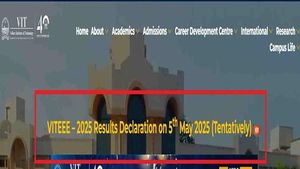Giampaolo Gravina, the esteemed wine journalist and educator, passed away on February 6, 2023, during an event in Friuli, Italy, where he had planned to connect with local producers. Gravina, who was known for his deep passion for wine and education, was 57 years old.
Gravina was much more than just a wine expert; he was also a philosopher. His academic background began at the University of Rome 'La Sapienza,' where he taught aesthetics, before he transitioned to the University of Gastronomic Sciences of Pollenzo. There, he inspired students with his love of wine and its cultural significance, turning the classroom experience vibrant and engaging. His affection for wine was not just professional; it was deeply personal and transformative.
Throughout his illustrious career, Gravina made significant contributions to wine journalism, bringing clarity and enthusiasm to the subject. He was well regarded for his broadcasts on Radio Rai Tre, where he hosted "Puri Spiriti," captivating audiences with his approachable and insightful discussions about wine. His radio presence only complemented his writing, where his contributions to publications, such as L’Espresso and various wine guides, were celebrated for their depth and originality.
Many people, including colleagues and friends, mourned the loss of Gravina. Camillo Favaro, who collaborated with Gravina on the influential book "Vini e terre di Borgogna," remembered him fondly, stating, "He is simply the person who taught me the most over many years of work and brought authentic friendship."
Eleonora Cozzella, director of Il Gusto, captured the essence of Gravina’s approachable style, remarking, "He was knowledgeable about wine but held no snobbery. It mattered to him to cultivate passion for its soul, even among those lacking expertise."
Ernesto Gentili, another long-time collaborator, recognized his genuine curiosity and dedication to the lives of producers, emphasizing Gravina's integrity and willingness to engage with diverse opinions.
Gravina was driven by his curiosity, always eager to discover new facets of the wine world and share them with the public. He opened the restaurant “Uno e Bino” in Rome during the late 1990s, creating a hub for both enthusiastic connoisseurs and novices, many of whom gained expertise through his guidance. His educational approach was unique—he made complex wine concepts accessible without tiring the audience with technical jargon. His lectures on varietals and regions showcased his knack for engaging storytelling, ensuring his audience left enchanted and informed.
His works include notable contributions such as "Vini da scoprire" and "La riscossa dei vini leggeri," which reflect his collaborative spirit with fellow writers and his dedication to invigorate wine discourse. Aside from his literature, Gravina's legacy also resonates within the spaces of wine competitions where he served as judge, exemplifying his commitment to elevatory wine culture.
Gravina’s demise not only leaves the world of wine without one of its eloquent advocates but also highlights the task of nurturing the next generation of wine appreciators. His ability to see wine as more than just fermented grapes but as culture, emotion, and history allowed him to communicate its essence effectively.
His passing has left many reflecting on his contributions and the joy he brought to learning about wine. The void left by Giampaolo Gravina will be felt deeply across the industry and among friends and admirers, who appreciated not just his knowledge but his generous spirit. To call him merely influential would be to diminish the legacy he leaves behind—a legacy characterized by love, humility, and excellence within the world of wine.



